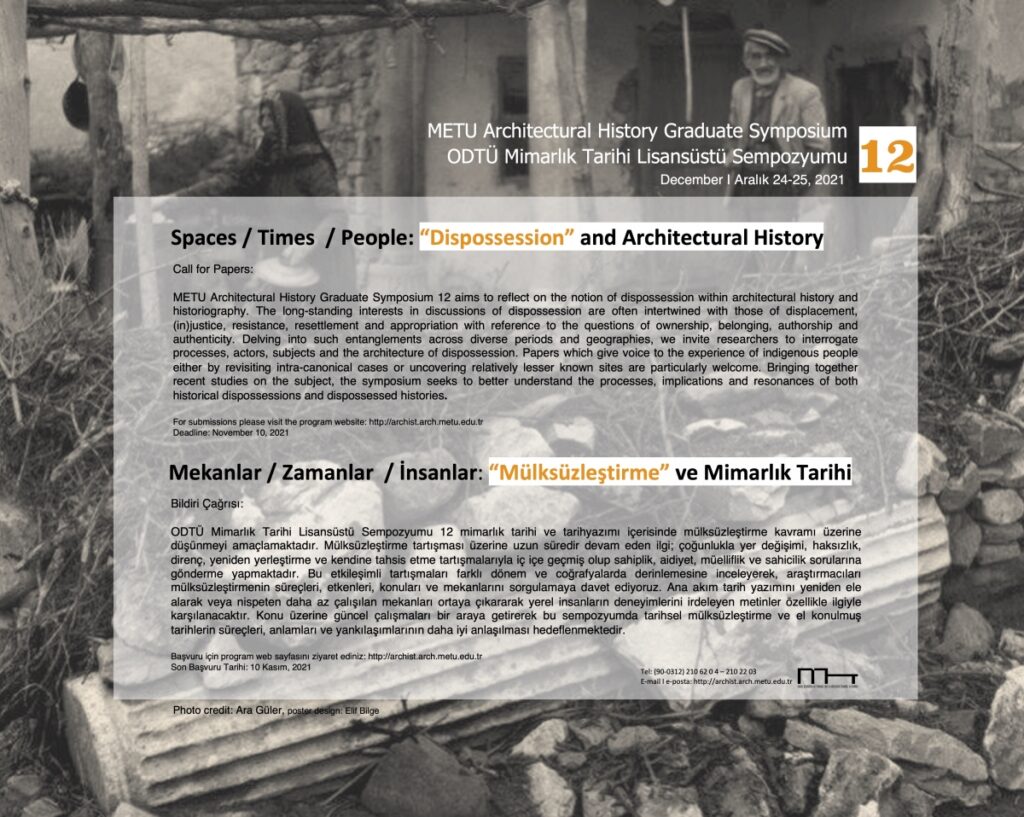 Middle East Technical University Graduate Program in Architectural History organizes a series of symposiums bi-annually, open to graduate students and researchers who have recently completed their Ph.D. studies. The twelfth meeting of the symposium series will take place on December 24-25, 2021 and focus on the theme of “Spaces / Times / Peoples: Dispossession and Architectural History”
Middle East Technical University Graduate Program in Architectural History organizes a series of symposiums bi-annually, open to graduate students and researchers who have recently completed their Ph.D. studies. The twelfth meeting of the symposium series will take place on December 24-25, 2021 and focus on the theme of “Spaces / Times / Peoples: Dispossession and Architectural History”
METU Architectural History Graduate Symposium 12 aims to reflect on the notion of dispossession within architectural history and historiography. The long-standing interests in discussions of dispossession are often intertwined with those of displacement, (in)justice, resistance, resettlement and appropriation with reference to the questions of ownership, belonging, authorship and authenticity. Delving into such entanglements across diverse periods and geographies, the committee invites researchers to interrogate processes, actors, subjects and the architecture of dispossession. Papers which give voice to the experience of indigenous people either by revisiting intra-canonical cases or uncovering relatively lesser known sites are particularly welcome. Bringing together recent studies on the subject, the symposium seeks to better understand the processes, implications and resonances of both historical dispossessions and dispossessed histories.
Eligibility: The symposium is open to graduate students and researchers who have received their doctoral degrees within past 5 years.
Language of the Symposium: Turkish and English
Submission of Proposals: Abstract and information sheets should be sent to metu.harch.symposium@gmail.com by 10 November 2021.
Find more information in the full call for papers.
